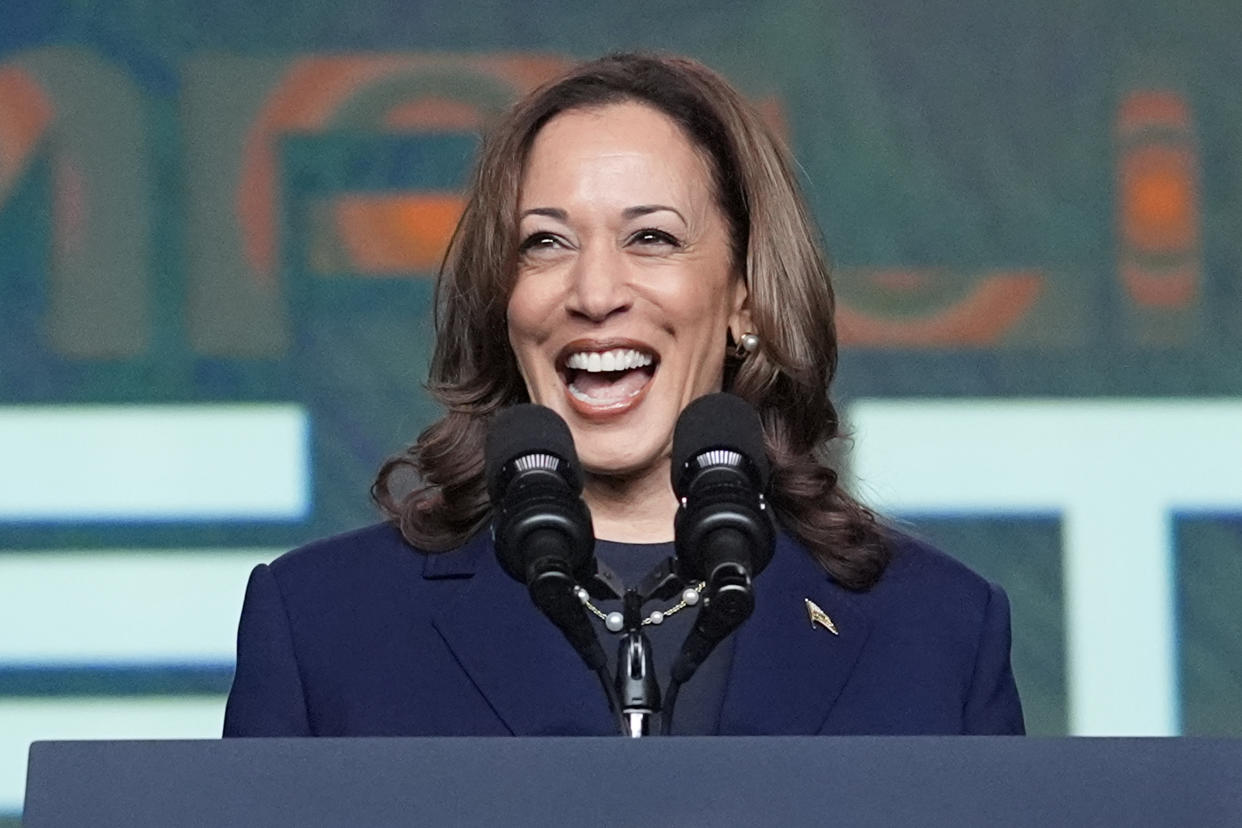The Harris campaign's 'weird' social strategy seems to be working. Will it translate to votes?

The Obama administration had, “Yes we can.” Hillary Clinton had, “I’m with her.” And now, Kamala Harris’s campaign has “Weird.”
Last Thursday, the Harris campaign issued a press statement reacting to former President Donald Trump’s most recent interview with Fox News. In it, they wrote, “Trump is old and quite weird?” Harris was even saying “weird” as far back as 2018 when she, as a contender for the Democratic nomination, said if Trump behaved the same as he did during his 2016 debate against Clinton with Harris she would turn around and ask, “Why are you being so weird?”
Latest Harris campaign email:
"Trump is old and quite weird?"
😂 pic.twitter.com/AUlr9MeRqm— Jennifer Bendery (@jbendery) July 25, 2024
The campaign’s use of “weird” and more casual language in general — in that same press statement, they wrote, “This guy shouldn’t be president ever again” — aligns with the internet presence Harris has embraced since announcing her plans to run for the Democratic nominee: Relatable and concise. Maybe a little weird too.
The relationship with social media, especially when it comes to political candidates within the last few election cycles, is critical. It’s what television did for John F. Kennedy and what YouTube did for Barack Obama — this is where young people are going and where candidates need to market. And young people can immediately tell when it’s being faked.
That’s where the Harris campaign excels, says Angela Corbo, chair of communications at Widener University. Harris's presence on social media shows all sides of her persona — her seriousness and her goofiness clearly displayed on both her official vice presidential X account and her campaign’s “rapid response” account, respectively.
The campaign’s communications team did not respond to Yahoo News’s request for comment.
— Kamala HQ (@KamalaHQ) August 1, 2024
“She really presents herself as this, ‘I am Kamala, this is who I am,’” Corbo told Yahoo News. “I think it was a strategic move on her campaign’s party to say, ‘We were criticized before for not being vibrant. Now we’re going to do it.’”
As vice president, Harris was portrayed by the press and White House insiders as someone sidelined and constrained who “is struggling to carve out a lane for herself.” An Onion headline from 2021 captures the general sentiment toward her over the last four years: “White House Urges Kamala Harris To Sit At Computer All Day In Case Emails Come Through.”
“She just has a different energy and that energy is coming through on social media,” Corbo said. “There’s a very conscious choice to be represented as the former attorney general, as a prosecutor, as ‘Momala,’ as an auntie, as an AKA sorority sister. [The campaign is] playing into that.”
Will online memes translate to polling numbers?
Both “coconut-pilled” and “Brat” have already exhausted their short-lived meme lifespans, but the campaign has managed to keep up the momentum for Harris online in a way that has resonated with voters offline.
“Young people have set the agenda,” Antonio Arellano, the vice president of communications at the youth voter-focused nonprofit NextGen America, told Yahoo News. “You can bet your bottom dollar that young people are not just going to put out memes, they’re going to turn out and mobilize like never before.”
why did I stay up till 3am making a von dutch brat coconut tree edit featuring kamala harris and why can’t I stop watching it on repeat pic.twitter.com/hqcmerD1Pb
— ryan (@ryanlong03) July 3, 2024
When President Biden announced he was dropping out of the 2024 election and endorsed Harris, something shifted with voters and that was reflected online. The Pew Research Center reported in mid-July that young voters were more likely to say they would replace both Biden and Trump on the ticket if possible. Biden’s approval ratings from Gen Z and millennials were already at record lows in 2022.
Voters were ready for someone new. The Harris campaign made sure they met her, even if it meant through memes.
“We’re dealing with a digital generation,” Arellano said. “Harris is leveraging TikTok and Instagram and innovative new ways to engage with young people. That’s exactly what we need to do.”
Within a week of Harris launching her campaign, Vote.org experienced its highest levels of voter registrations out of the whole election cycle, the majority of which were from those under the age of 34. NextGen America saw a 166% spike in volunteer sign-ups, the organization told Yahoo News.
“Suggesting that Gen Z is only about memes and not about votes completely undermines and dismisses their political power,” Arellano added. “The momentum is on the side of an aspirational campaign that’s looking forward into the future. … That’s the campaign that Kamala Harris is running.”


